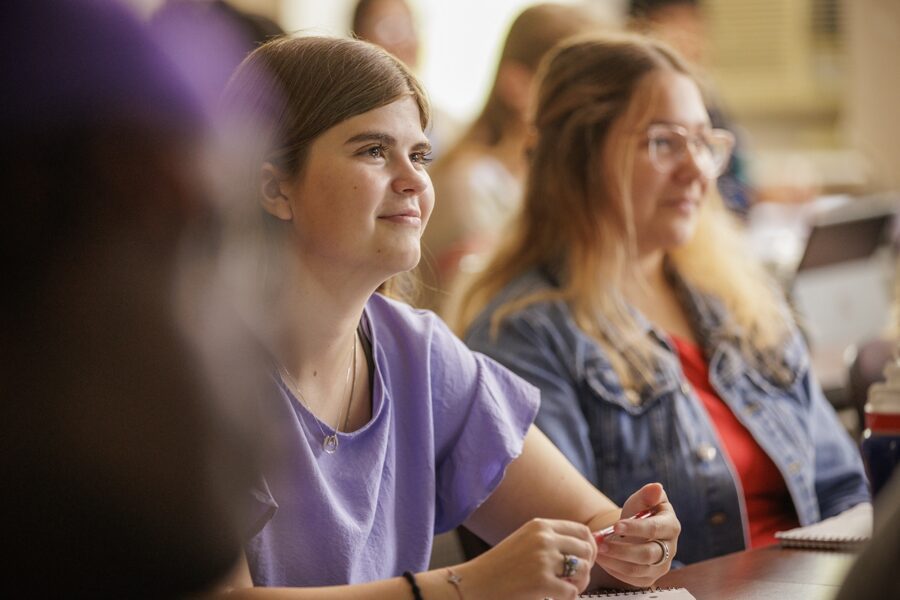
The concise 10-chapter book of Esther has much to teach us about history. Four two-word sentences summarize several significant lessons.
Truth Matters
The book of Esther begins with the simple Hebrew word wayhî, a common word that literally means “and it was.” The King James Version most often translates the word to mean “now it came to pass.” The New International Version begins Esther with these words: “This is what happened.” The Hebrew word here makes a truth statement. The book does not begin as we begin our fairy tales — “once upon a time in a far- off land” — but with wayhî: “and it was.” The author intentionally draws the reader’s attention to truth; what follows is neither fiction nor allegory.
The task of history is to speak truth with clarity. In a 1974 essay, Russian dissident and historian Aleksandr Solzhenitsyn admonished the Russian people to “live not by lies.” He was referencing, of course, the ideology pushed by a repressive communist government. His point, however, still resonates today: Truth always matters. Lies ought not dictate life.
Christian historians are the last best hope when it comes to truth-telling. For if they don’t, who will?
Years Matter
We in the 21st century are conditioned to live in and for moments. Our world is obsessed with here-and- now experiences that emphasize the instantaneous. Perhaps our smartphones illustrate this best. Everything is instantly at our fingertips: texting, social media, photos, world news, contacts, calculators, cameras, maps, movies, weather reports, scores of ballgames and more. The expression “That’s so last year” has come to reflect our collective disdain for whatever is not immediately accessible and relevant.
Though Esther contains only 10 chapters, the attentive reader discovers the events outlined therein cover many years. The story underscores a central theme in Scripture: namely, that the God Who is capable of the immediate miracle most often works in years. Evidence is abundant:
Consider Abraham: You’ll have a son … in 25 years!
Consider Moses: These people will get out of the desert … in 40 years!
Consider Isaiah: Tell those people the Messiah will come … in 700 years!
Consider the disciples: Jesus will return … but it’s now been 2,000 years!
The historian, of all people, appreciates years. They are important in the economy of God, signaling His activity from age to age.
Obscurity Matters
On the surface this seems to be an oxymoron, for the dictionary tells us that to be obscure is to be unknown, unnoticed or unimportant. Therefore, one might say obscurity is that which does not matter. Yet, I want to suggest that obscurity matters to at least two people: (1) God and (2) the historian.
God specializes in seeking and using the obscure. Consider the following:
He used the youngest, most unimpressive-looking brother, David.
He showed up in small villages like Bethlehem, Nazareth and Capernaum.
He called unsuspecting people like Mary and a group of Galilee fishermen
Esther fits that category. The story takes place in a remote location called Susa, far from cosmopolitan hubs like Jerusalem, Athens or Rome. Further, the book is filled with seemingly unimportant details like these:
A Persian queen gets ousted and replaced by a Jewish woman, who is selected from a Miss Persia contest.
That same Jewish woman has a cousin, Mordecai, who hears about an assassination plot against the king.
The assassination plot is recorded and then shared with the king.
We have here an obscure place with obscure people and dozens of obscure details and events. God takes them all and weaves them together for His purpose to save the lives of the Jewish people.
Historians delight in discovering and revealing what has long been hidden or obscure. In fact, one might argue that historians would be out of a job without obscure objects to uncover and interpret. Value, meaning and perspective are provided when obscurity is clarified.
Heroes Matter
In the last chapter of Esther — where three verses form the shortest closing chapter of any book in the Bible — we read that Mordecai’s greatness is remembered and recorded in the history books of the Medes and Persians. Mordecai became an adopted hero to the Persians. The stories of Mordecai and Esther are still being told 2,500 years after the events happened. The book of Esther is a perpetual reminder that heroes matter.
Just what is a hero? The dictionary defines hero as one who is admired and remembered for courage, achievements or noble qualities.
We humans seek heroes who inspire, encourage and offer hope and guidance. Standards of virtue, integrity and persistence emerge from the lives of such people. Historians write their stories. While we are grateful for such historians, we are even more grateful for those who aspire to be heroes. They matter, and they are needed today as much as ever.
Conclusion
Truth, years, obscurity and heroes — those meaningful lessons found in the book of Esther — are the building blocks our Sovereign God uses in every generation. History is shaped by these elements. Truth insists on allegiance. Years impart perspective. Obscurity invites investigation. Heroes inspire future generations. All these contribute to a healthy understanding of our past.
Esther’s lessons remain timeless in a world that desperately needs to recover its history.
From Olivet The Magazine, On Purpose – Winter 2024. Read the full issue HERE.





